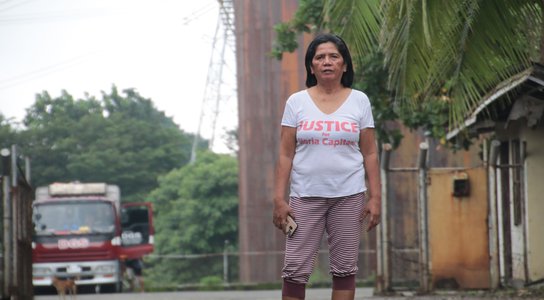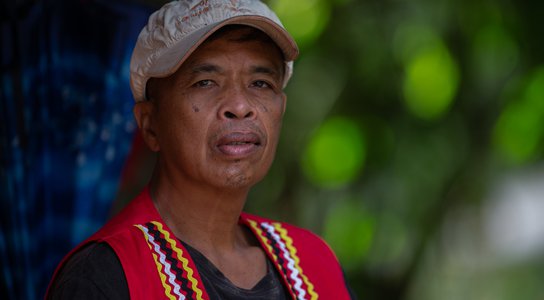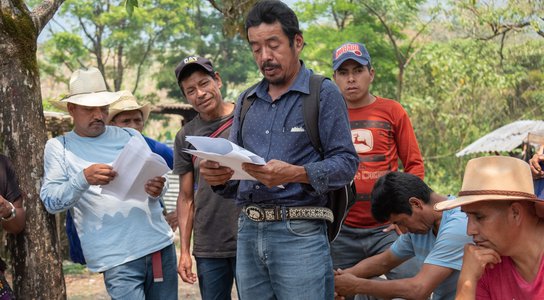On the one-year anniversary of Julián Carrillo’s assassination, we ask whether the Mexican government is sowing the seeds for future conflict
On the evening of 24th October 2018, Julián Carrillo made a run for the hills, where he thought he’d have a better chance of getting phone signal. Some heavily armed men had shown up in his village and were asking for him, he told the authorities.
Julián had every reason to be scared. Five members of his family had been killed in two years - the latest victims in a long line of assassinations in his small community in Mexico’s Chihuahua state. Julián had already received numerous death threats, and seen his house set ablaze.
Hours after he made that call, his body was found riddled with bullets.
This is the price you can pay for taking on big business in Mexico. In the same month as his murder, Julián had spoken out at a local meeting against the installation of a nearby mining project.
For decades, his indigenous group has been standing up for their rights to the land that they have lived on for generations. This land has been passed between logging and mining companies without their consent, leaving considerable environmental and social scars.
Fighting to protect land and ecosystems against industrial encroachment has become more dangerous in Mexico. At least 14 land and environmental defenders were killed there in 2018 alone – the sixth highest death count globally, according to data published by Global Witness.
But Carrillo’s death also fits a worrying global trend. As demand for products like timber, palm oil and minerals continues to grow, companies, governments and criminal gangs are routinely stealing land and trashing nature in pursuit of profit.
When the people who live on these lands resist being turfed out of their homes, having their water polluted or forests destroyed, they increasingly come up against companies’ private security, state forces, or contract killers.
Last year, more than three people lost their lives in these battles every week.
New President, new hope?
Many Mexicans had hoped that the violence on their country’s environmental frontiers would take a turn for the better when Andres Manuel Lopez Obrador was elected President in July last year.
During his election campaign, Lopez Obrador pledged to make the environment "a pillar of our social policy." Among his promises were planting 1 million hectares of trees, protecting water resources, consulting indigenous communities on development projects, and cracking down on the slaying of environmental defenders.
Lopez Obrador’s environmental credentials took a serious knock, however, when he began pushing through a series of mega projects, including a US $8 billion oil refinery in the state of Tabasco and a 900-mile railway along the Yucatán Peninsula that’s set to bulldoze through some of the country’s most pristine rainforest.
Both projects were reportedly launched before environmental impact studies were completed, or local indigenous peoples properly consulted.
The right to protest in Mexico looks imperilled too. Just three months ago, in an apparent pre-emptive strike for Tabasco’s new oil refinery, the state legislative passed a law to crack down on activism, including prison sentences of up to 20 years for blocking companies’ access to their operations.
It’s hard to interpret these developments as anything other than championing the rights of big business over citizens’ rights to their land and a healthy environment.
Justice for Julián
Today, on the one-year anniversary of Julián Carrillo’s death, human rights and environmental campaigners will be calling on their government to find and punish his killers.
In the rare cases where anyone is held to account for the murders of land and environmental defenders, it tends to be the hitmen who are put behind bars rather than those who hired them.
This is what happened in Julián’s case - two men were arrested for his murder in January, with no clarity as to where their orders came from. This of course raises serious questions about whether powerful people in industry or politics might be buying themselves impunity.
With justice so elusive, it’s little wonder that crimes like these repeat themselves. According to the local NGO Alianza Sierra Madre, at least 18 members of Julián’s community in Coloradas de la Virgen have been assassinated since the 1980s, with around half of those murders taking place since 2016.
These were people who pitted themselves against loggers and miners because they hadn’t been consulted about the use of their land, and these companies had refused to heed environmental warnings.
By promoting huge infrastructure projects that lack strong environmental safeguards and try to bypass meaningful consultation with the people who’ll be affected by them, the president and his administration risk sowing the seeds for future conflict between industry and local populations.
It’s very hard to see how this squares with Lopez Obrador’s electoral pledge to stop the slayings of environmental defenders. If anything, it could open the door to more.


